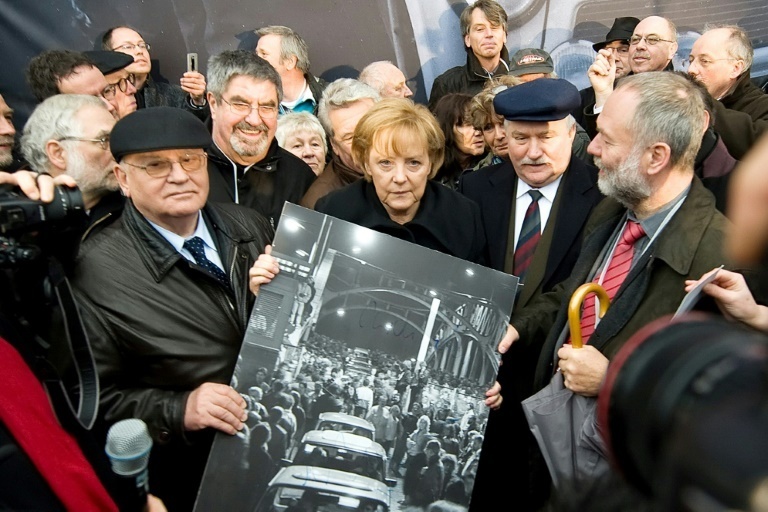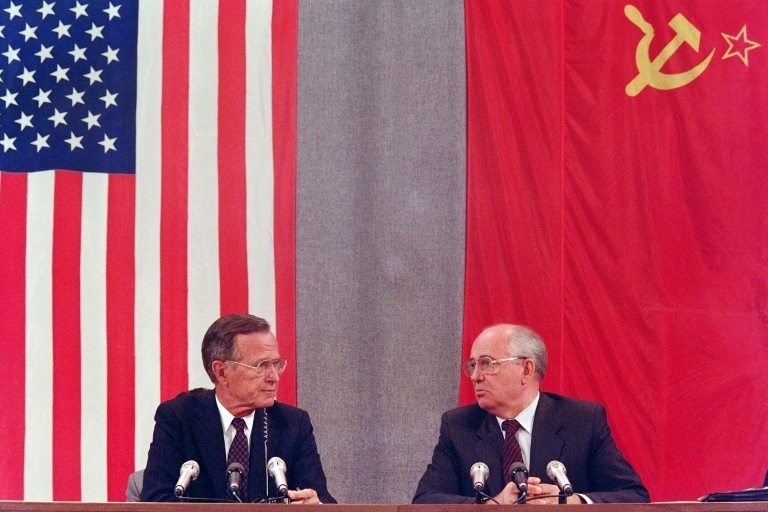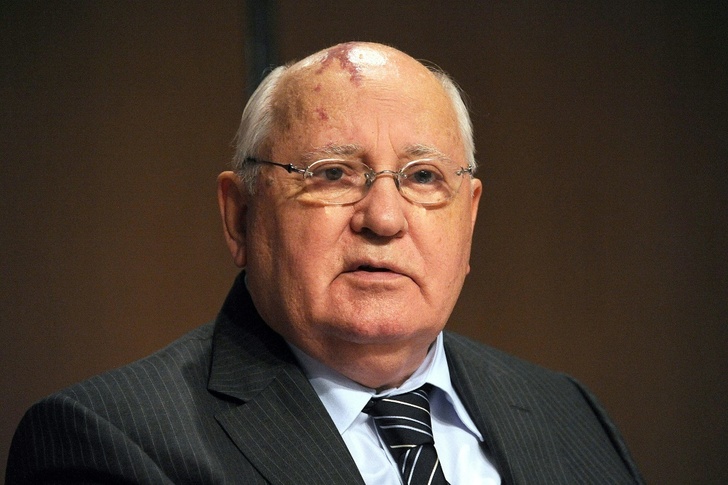Mikhail Gorbachev, the last leader of the Soviet Union, has died in Moscow aged 91, Russian news agencies reported on Tuesday.
"Mikhail Sergeyevich Gorbachev died this evening after a serious and long illness," the Central Clinical Hospital in Moscow said, quoted by the Interfax, TASS and RIA Novosti news agencies.
Gorbachev, who was in power between 1985 and 1991 and helped bring US-Soviet relations out of a deep freeze, was the last surviving Cold War leader.
He spent much of the past two decades on the political periphery, intermittently calling for the Kremlin and the White House to mend ties as tensions soared to Cold War levels since Russia annexed Crimea in 2014 and launched an offensive in Ukraine earlier this year.
Gorbachev spent the twilight years of his life in and out of hospital with increasingly fragile health and observed self-quarantine during the pandemic as a precaution against the coronavirus.

He won a Nobel Peace Prize in 1990 for negotiating a historic nuclear arms pact with US leader Ronald Reagan and his decision to withhold the Soviet army when the Berlin Wall fell a year earlier was seen as key to preserving Cold War peace.
He was also championed in the West for spearheading reforms to achieve transparency and greater public discussion that hastened the breakup of the Soviet empire.
- Strained Putin ties -
The first Russian leader to live past the age of 90, he was congratulated by world leaders, including US President Joe Biden and former German chancellor Angela Merkel on his 90th birthday.
At home, Gorbachev remained a controversial figure and had a difficult relationship with Russian President Vladimir Putin.
For Putin and many Russians, the breakup of the Soviet Union was a tragedy, bringing with it a decade of mass poverty and a weakening of Russia's stature on the global stage.

As the USSR collapsed, Gorbachev was superseded by the younger Boris Yeltsin, who became post-Soviet Russia's first president.
From then on, Gorbachev was relegated to the sidelines devoting himself to educational and humanitarian projects.
He made a disastrous attempt to return to politics and ran for president in 1996 but received just 0.5 percent of the vote.
Over the years he saw many of his major achievements rolled back by Putin.
An early supporter of Russia's leading independent newspaper Novaya Gazeta, founded in 1993, he donated part of his Nobel winnings to help it buy its first computers.
But the newspaper, like Russian independent media across the board, came under increasing pressure during Putin's two-decade reign.
bur/jv
© Agence France-Presse
Your content is great. However, if any of the content contained herein violates any rights of yours, including those of copyright, please contact us immediately by e-mail at media[@]kissrpr.com.
Source: Story.KISSPR.com

